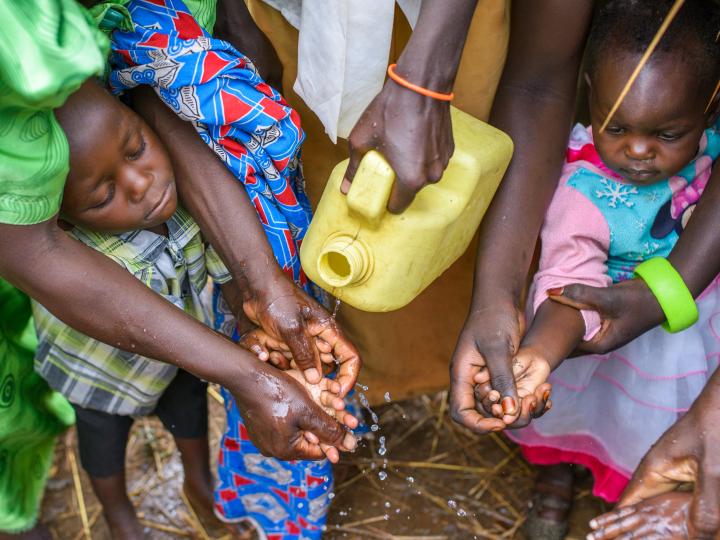
Nutrition and Water, Sanitation and Hygiene
Nutrition and Water, Sanitation and Hygiene (WASH)
Access to clean drinking water, sanitation and hygiene (WASH) can reduce the prevalence of childhood malnutrition and stunting by preventing diarrhoea, parasitic diseases and environmental enteropathy, which negatively impact the body’s ability to absorb nutrients and impede normal growth and cognitive development. Improving access to safe WASH interventions could prevent at least 1.4 million deaths annually (WHO, 2023).
According to the World Health Organization, there are nearly 1.7 billion cases of childhood diarrhoeal disease every year. In children under five years old, diarrhoeal disease is a leading cause of malnutrition and the second leading cause of death, and was responsible for the deaths of 370,000 children in 2019 (WHO, 2019). Children suffering from persistent diarrhoea are highly likely to be malnourished and demonstrate a lowered resistance to infection, making them more likely to die from infectious diseases. For infants under six months of age, diarrhoea can cause permanent damage to intestinal development, reducing a child's ability to absorb nutrients and putting their future health and development at risk.
How does World Vision integrate Nutrition and WASH?
World Vision acknowledges the importance of the intersection of Nutrition and WASH, and this influences how our nutrition programmes are designed and implemented. Here are a few examples:
Positive Deviance Hearth, includes messaging on water, sanitation and hygiene, with WASH messages contextualised for the specific community.
Many of World Vision's multi-sectoral programmes, such as Nurturing Care Groups and nutrition-sensitive agriculture, include WASH programming and target WASH-related behaviour change.
Exclusive breastfeeding is protective and prevents diarrhoea from occurring in young children. Breastfeeding also reduces the severity of diarrhoea. World Vision works to protect breastfeeding in emergencies.
WASH is a priority intervention in emergencies, including times of acute hunger.
World Vision's BabyWASH initiative aims to integrate WASH into nutrition, maternal, newborn and child health and early childhood development to have a more profound impact on child health outcomes in the first 1,000 days of life.
Learn more about World Vision's WASH programmes.





